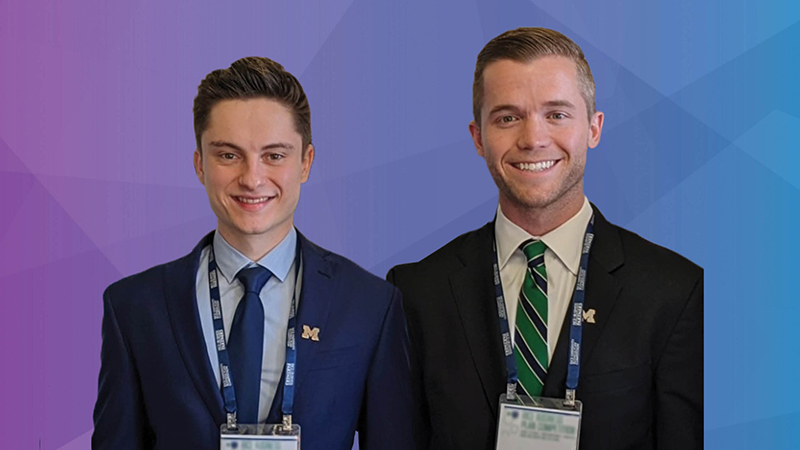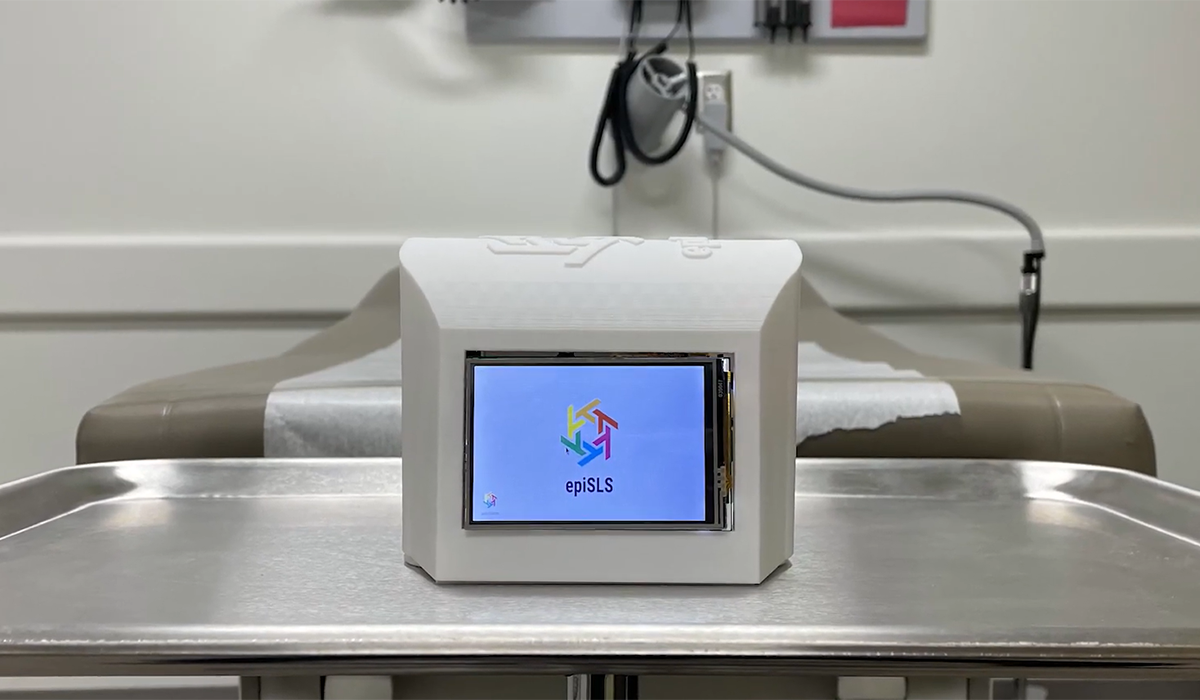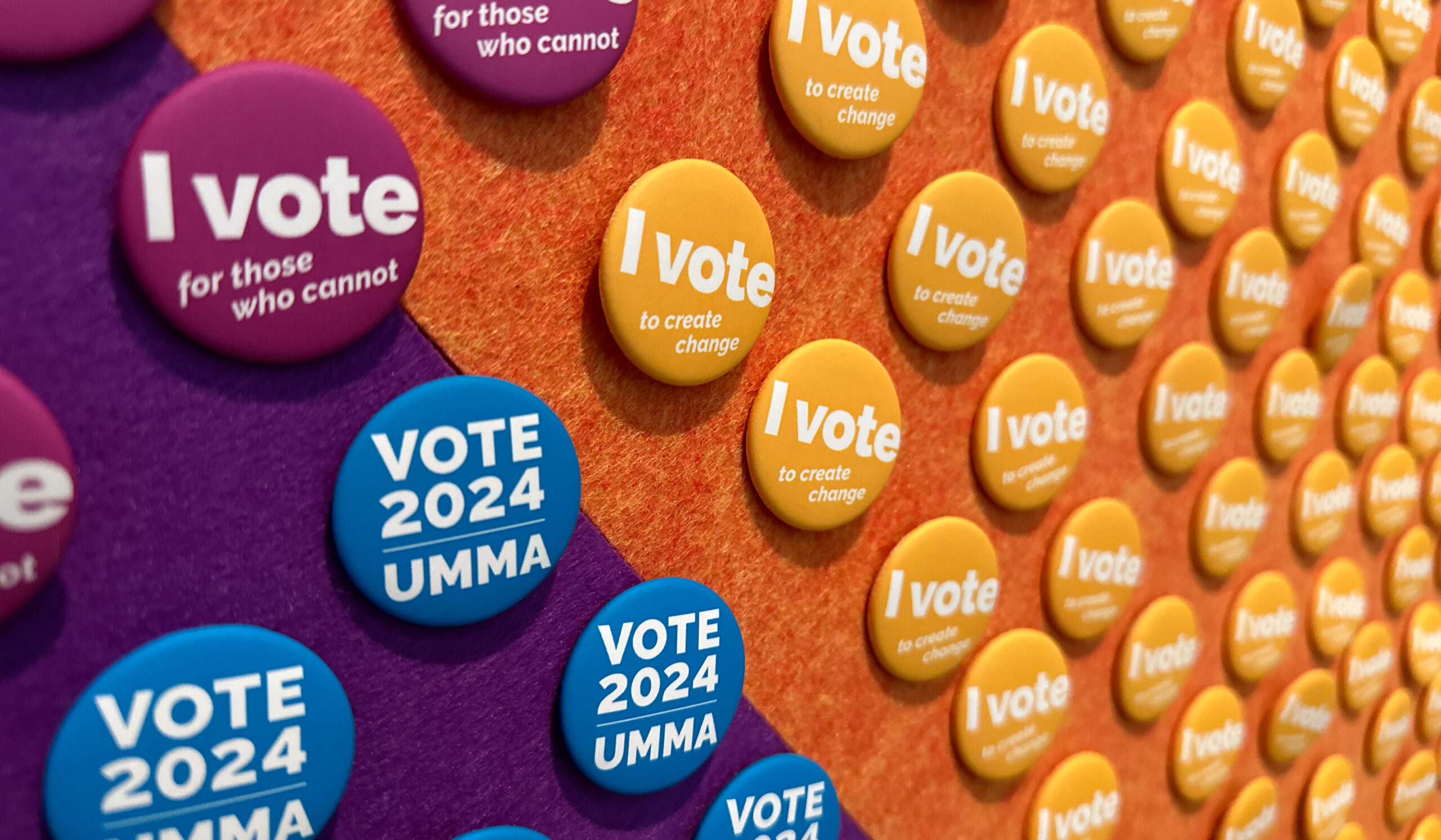Allergies of various degrees are the sixth-leading cause of chronic disease in the U.S., but there is only one allergist per 50,000 patients in the country. This limits the ability of allergy sufferers to get properly diagnosed and treated. U-M graduate students Parker Martin and Cory Cooney are combining medical and business knowledge with epiSLS, an easy-to-use test they designed to address this accessibility problem. In September, Martin and Cooney were named finalists in the 2022 Collegiate Inventors Competition by the National Inventors Hall of Fame, in recognition of their continuing work. The team was advised by Anne Perigo, ’91, associate director of U-M’s Zell Lurie Institute for Entrepreneurial Studies (ZLI).
Michigan Alum gleaned the following in conversations with the two graduate students.

INSPIRATION TO PURSUE the medical field came from personal sources for both students. Martin grew up with a passion for science – including attending public lectures and dismantling electronics as a young boy – but came to medicine later.
“My family was heavily involved in the airline industry, and I grew up wanting to be a pilot,” he says, “But, when I was 8 years old, I was diagnosed with Type 1 diabetes. The FAA, at the time, said that Type 1 diabetics couldn’t be commercial pilots.”
The silver lining of that diagnosis, however, was the exposure to the doctors that were helping him: “It helped me realize it was a field where I could apply my scientific curiosity to make an impact on something as existential as people’s health and help improve the course of their lives.”
When Cooney was 7 years old, his sister was diagnosed with leukemia.
“She’s fine now, but that inspired me to get involved in science. I double-majored in biology and business at the University of Southern California, and I really got involved in the business side of health care. After seven years in reimbursement consulting, I came to Michigan Ross and got involved in the health care programming the school offers.” It was through that involvement that Cooney met Martin, with the two combining their respective science and business expertise into a formidable partnership.
THE TEAM BELIEVES epiSLS has the potential to greatly expand the accessibility of allergy testing.
“Many people don’t live in communities where allergists are available to conduct the ‘gold-standard’ skin prick allergy test,” Martin says. “The only other choice is a blood-based test that involves sending a sample across the country to a lab.” That takes at least three days, is less accurate, and can’t test for important things such as penicillin allergies. “We want to provide a quicker answer, such as in the case of an emergency, at the point of care.”
EpiSLS works by placing the system on exposed skin, pressing a button, and providing answers 30 minutes later.
“It follows the same high-fidelity testing protocol used in that ‘gold-standard’ skin prick testing, but it automates it and allows us to measure the response with quantifiable outcomes.”
Cory Cooney gives a brief overview of the epiSLS system.
U-M GAVE MARTIN AND COONEY the tools not just to develop epiSLS, but to bring it to market, as Cooney notes.
“Understanding the regulatory requirements and the business of biology is always a challenge. In addition to classroom education, programs like the ZLI have given us access to funding and, more importantly, access to so many amazing people with such a wide variety of experiences who have helped us drive the idea forward. And that’s not just U-M, that’s the Ann Arbor ecosystem being great for entrepreneurship, too.”
MARTIN AND COONEY ARE DEVOTED to continue working on epiSLS. Though they caution against any expectation of a quick development – “years, not months,” as Cooney puts it – both are making it a major part of their future.
“I’ve always been the sort of person to have a Notes app full of ideas I want to work on,” Martin says. “But right now, epiSLS is my focus. It has the greatest potential to make the biggest impact possible. I want to see that through to the point that it’s able to change the way that medicine handles allergies.”
“My plan is to continue in the health care space,” says Cooney. “And I think epiSLS is a huge part of my future. We’re continuing down the path of commercialization. I will finish my education and continue filling out my toolkit, but epiSLS is the only project on my plate. It takes up plenty of my time.”
Gregory Lucas-Myers, ’10, is the senior assistant editor of Michigan Alum.





